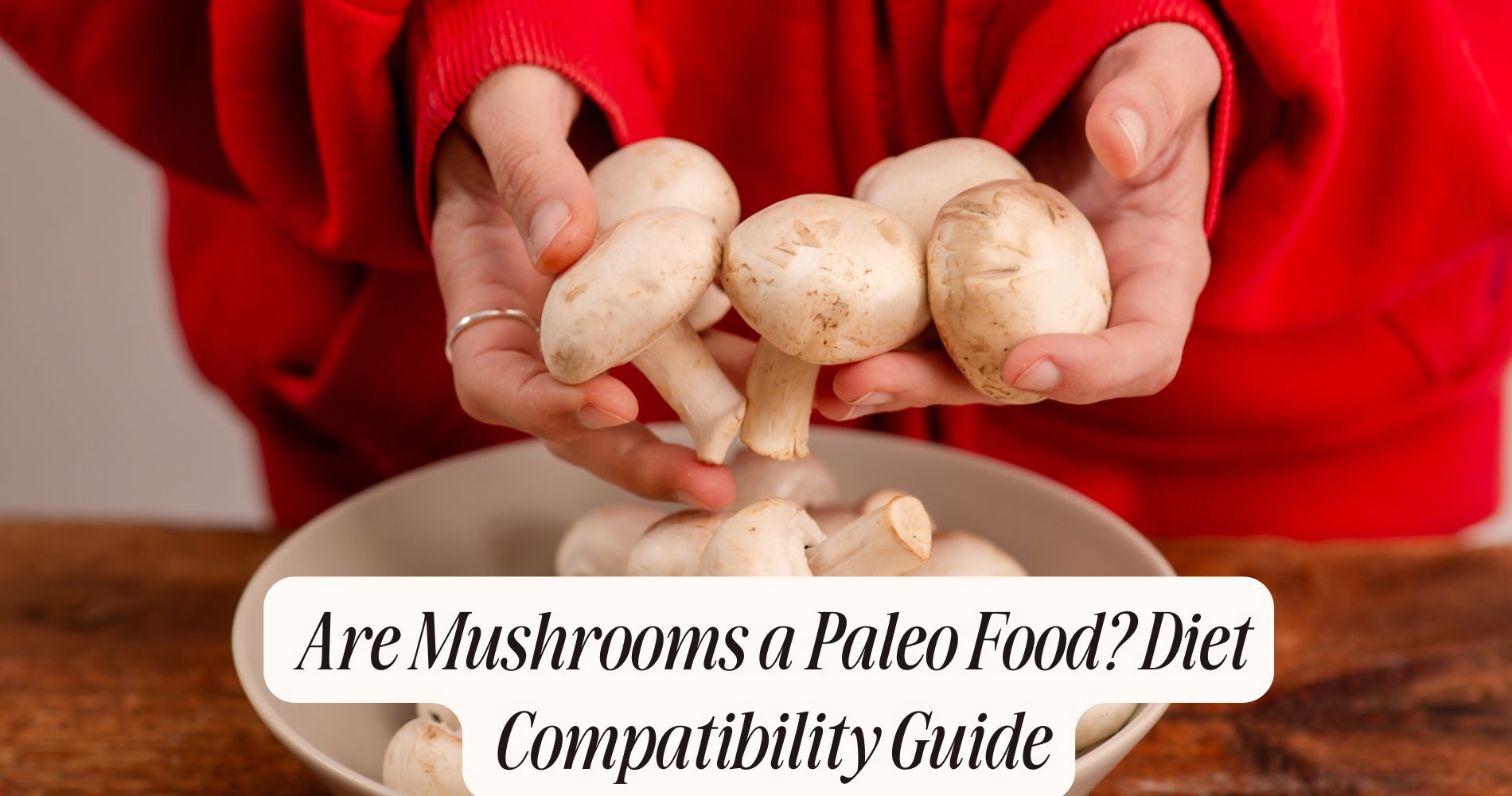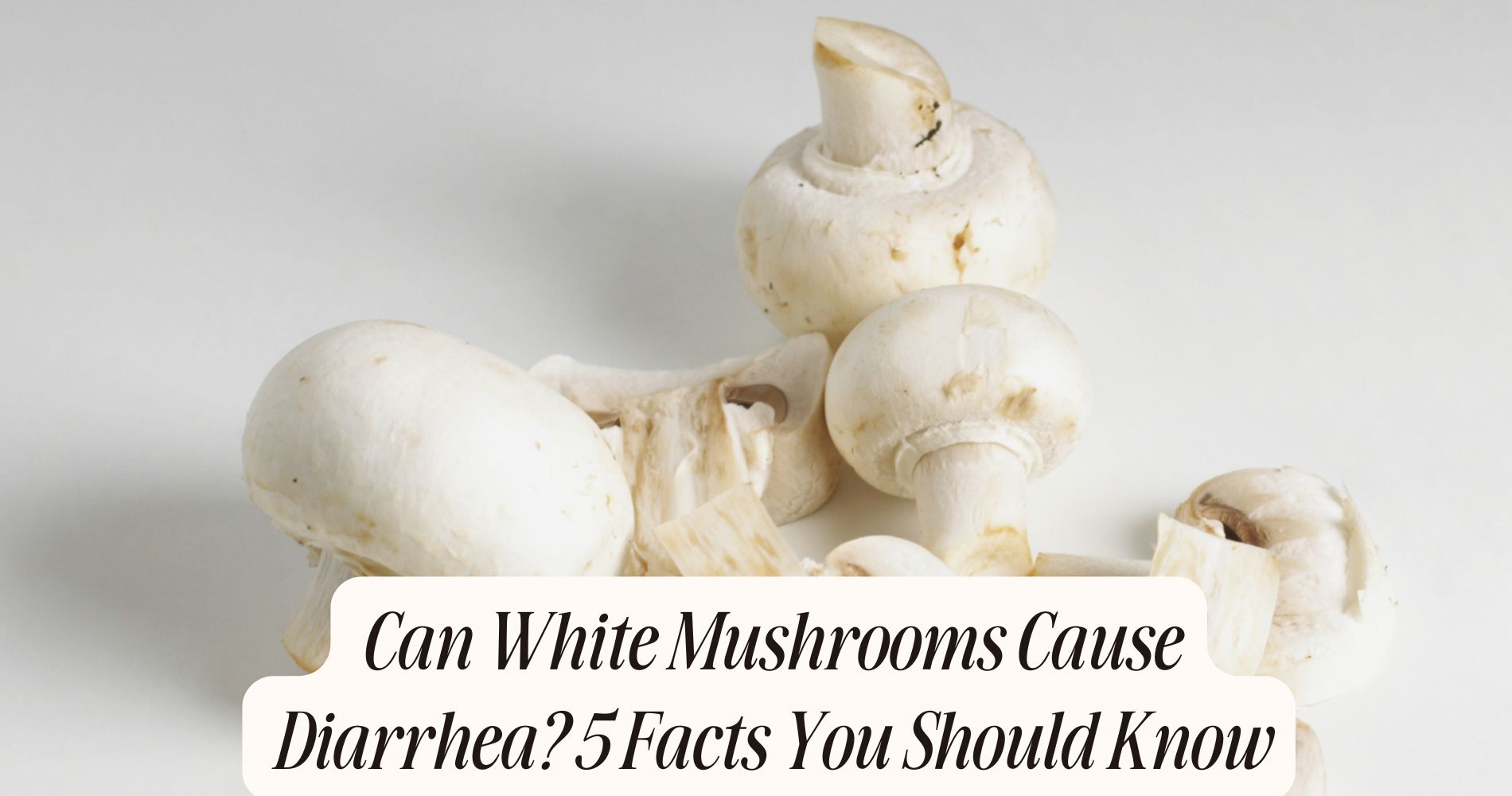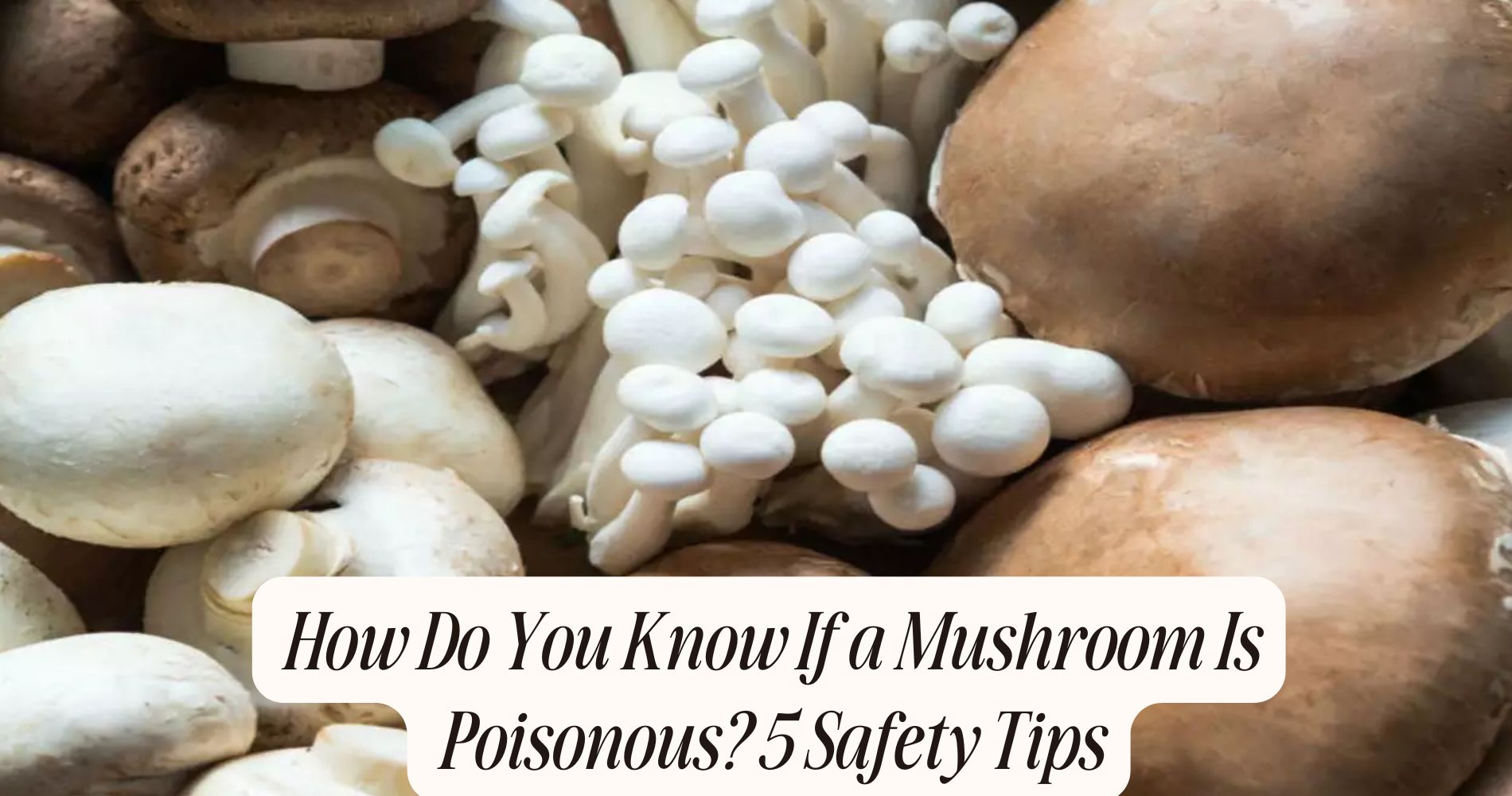
Are Mushrooms a Paleo Food? Diet Compatibility Guide
Are mushrooms a paleo food? Yes, mushrooms are a great fit for the Paleo diet. They align with the focus on unprocessed, whole foods while offering a wealth of nutrients like B vitamins, vitamin D, and important minerals. Plus, their high fiber content helps with digestion. Common varieties, like shiitake and portobello, can enhance your meals with rich flavors and satisfying textures. While there are some concerns about toxicity and absorption, properly cooked mushrooms are safe and beneficial. If you want to know more about how to incorporate them in your meals or which types to choose, there's plenty more to explore!
Understanding the Paleo Diet
The Paleo diet, often called the caveman diet, focuses on whole, unprocessed foods that mimic what our ancestors ate during the Paleolithic era. You'll find that the Paleo principles revolve around consuming lean meats, fish, fruits, vegetables, nuts, and seeds while avoiding grains, legumes, dairy, and processed foods.
This approach to ancestral eating emphasizes the idea that our bodies are designed to thrive on foods that were available before the agricultural revolution. By following these principles, you're not just opting for a trendy diet; you're aligning your eating habits with what evolution has shaped your body to digest.
You might notice that many people report improved energy levels and better overall health when they adopt this way of eating. The emphasis on whole foods means you'll be getting essential nutrients without the additives and preservatives found in modern diets.
As you explore the Paleo lifestyle, remember that it's about finding balance and choosing foods that nourish your body, keeping in mind the lessons of our ancestors. Embracing this mindset can lead to a healthier relationship with food and a deeper understanding of what fuels your body best.
Nutritional Profile of Mushrooms
Mushrooms pack a punch when it comes to vitamins and minerals, making them a great addition to your Paleo plate.
They're also loaded with fiber and antioxidants that support your overall health.
Let's explore how these nutritional benefits can enhance your diet.
Vitamin and Mineral Content
Packed with essential nutrients, mushrooms offer a remarkable nutritional profile that can enhance your health. These delicious fungi are particularly rich in vitamins, including B vitamins like riboflavin, niacin, and pantothenic acid, which play significant roles in energy production and maintaining a healthy metabolism.
You'll also find vitamin D in certain varieties, which is critical for bone health and immune function.
Mushrooms are a great source of minerals as well. They provide significant amounts of selenium, copper, and potassium, all of which are important for various bodily functions.
Selenium acts as a powerful antioxidant, while copper aids in iron absorption, helping to prevent anemia. Potassium is essential for regulating blood pressure and promoting heart health.

Moreover, the unique structure of mushroom nutrients can help improve mineral absorption in your body. Consuming mushrooms alongside other foods can enhance the bioavailability of these minerals, ensuring you get the most out of your diet.
Incorporating mushrooms into your meals not only adds flavor but also boosts your intake of critical vitamins and minerals, making them a worthy addition to your Paleo plate.
Fiber and Antioxidant Benefits
Rich in dietary fiber and antioxidants, mushrooms can greatly contribute to your overall health. When you include mushrooms in your diet, you're not just adding flavor; you're also enhancing your nutrient intake. These fungi serve as excellent fiber sources, promoting digestive health and helping to keep you feeling full longer. This can be especially beneficial during your Paleo journey, as you aim for balanced meals that sustain your energy levels.
Additionally, mushrooms are packed with antioxidant properties that combat oxidative stress in your body. Antioxidants play an essential role in protecting your cells from damage caused by free radicals. By incorporating mushrooms into your meals, you're reinforcing your body's defense system and potentially reducing the risk of chronic diseases.
Whether you're sautéing them in a stir-fry or adding them to a hearty soup, mushrooms offer a versatile way to enhance your dish while providing these important health benefits.
Types of Mushrooms
When you think about mushrooms, there are several common edible varieties that come to mind, each with its unique flavor and texture.
Understanding their nutritional benefits can help you make better choices when incorporating them into your Paleo meals.
Plus, knowing different culinary uses and techniques will elevate your cooking game and keep your meals exciting.
Common Edible Varieties
Mushrooms offer an exciting variety of flavors and textures that can elevate any meal, making them a fantastic addition to the Paleo diet. You'll find several common edible species that not only enhance your dishes but also provide unique culinary applications.
Button mushrooms are a staple in many kitchens, known for their mild flavor and versatility. You can slice them into salads or sauté them for a hearty side.
Portobello mushrooms, with their meaty texture, work wonderfully as burger substitutes or grilled for a smoky flavor. Shiitake mushrooms bring an earthy taste that's perfect for stir-fries and soups, while cremini mushrooms add depth to sauces and stews.
Don't overlook oyster mushrooms; they've a delicate flavor and can be used in various recipes, from risottos to omelets.
Finally, enoki mushrooms, with their slender stems and tiny caps, make a delightful addition to salads or can be lightly sautéed for a garnish.
With such a range of edible species, you can easily incorporate mushrooms into your Paleo meals, adding both flavor and variety. Get creative and enjoy experimenting with these diverse mushrooms in your kitchen!
Nutritional Benefits Overview
Incorporating a variety of mushrooms into your meals not only enhances flavor but also offers impressive nutritional benefits. Each mushroom variety brings unique nutrients that can support your overall health. For instance, shiitake mushrooms are rich in B vitamins, which are essential for energy production, while portobello mushrooms provide a hearty dose of potassium, helping to regulate blood pressure.
You'll also find that many mushrooms are low in calories yet high in antioxidants, which combat oxidative stress in your body. For example, oyster mushrooms are known for their ability to elevate your immune system due to their high levels of beta-glucans. Additionally, enoki mushrooms are packed with fiber, promoting digestive health.
When you explore these different mushroom varieties, you'll discover their versatility in various culinary applications. Whether you're sautéing, grilling, or adding them to soups, mushrooms can easily fit into your daily meals.
Culinary Uses and Techniques
Exploring the culinary uses of various mushroom types opens up a world of flavor and texture in your meals. Whether you're sautéing shiitakes, creminis, or portobellos, each variety brings its unique taste to your dishes. For instance, shiitake mushrooms have a rich, earthy flavor that works wonderfully in stir-fries, while portobellos can serve as hearty burger substitutes.
When it comes to sautéing techniques, remember to keep your heat consistent. Start with a hot pan, add some cooking fat, and toss in your mushrooms. This method helps them caramelize beautifully, enhancing their natural flavors.
Don't forget to season as you go—salt and pepper can elevate even the simplest mushroom dish.

Mushroom pairings are essential to creating delicious meals. Pair button mushrooms with garlic and herbs for a classic side dish, or mix oyster mushrooms with fresh spinach for a vibrant pasta addition.
With so many types of mushrooms available, you can easily experiment and discover which combinations you love most. Embrace these culinary uses, and your dishes will never be the same.
Benefits of Eating Mushrooms
Although you mightn't think of mushrooms as a staple, they offer a wealth of health benefits that can enhance your diet. These versatile fungi come in various mushroom varieties, each bringing unique advantages to the table.
First off, mushrooms are low in calories and high in nutrients, making them an excellent choice for those looking to maintain a healthy weight. They're rich in B vitamins, which help boost your energy levels and improve brain function. Additionally, many mushroom varieties contain powerful antioxidants that combat free radicals, promoting overall health and reducing inflammation.
Mushrooms also provide essential minerals like selenium and potassium, which support immune function and heart health. Their high fiber content aids digestion and can help you feel full, reducing cravings for unhealthy snacks.
Moreover, certain types of mushrooms, like shiitake and maitake, may even have immune-boosting properties, potentially lowering the risk of infections.
Incorporating these nutrient-dense foods into your meals can enrich your diet while providing you with a variety of flavors and textures. So, don't hesitate to include mushrooms in your next meal!
Potential Concerns With Mushrooms
While mushrooms offer many benefits, there are some potential concerns you should consider.
Nutrient absorption issues can arise, impacting how your body utilizes the vitamins and minerals you consume.
Additionally, not all mushrooms are safe to eat, so understanding toxicity and safety is essential for your health.
Nutrient Absorption Issues
Mushrooms can be a nutritious addition to your Paleo diet, but they may come with some nutrient absorption concerns. One key issue is nutrient bioavailability. While mushrooms are rich in vitamins, minerals, and antioxidants, your body mightn't absorb these nutrients as effectively as you'd like. The presence of certain compounds in mushrooms can inhibit the absorption of critical minerals like iron and zinc, which are essential for your overall health.

Additionally, mushrooms contain polysaccharides and fibers that can impact your digestive health. For some people, these compounds may lead to digestive discomfort, making it harder for your body to utilize the nutrients effectively. If you struggle with digestion, you might want to limit your mushroom intake or focus on cooking methods that enhance nutrient absorption, like sautéing or roasting.
To maximize the benefits of mushrooms, consider pairing them with other foods that boost nutrient bioavailability, such as vitamin C-rich fruits and vegetables. This strategy can help counteract any potential absorption issues and guarantee you're getting the most from your Paleo meals.
Toxicity and Safety Concerns
When it comes to incorporating mushrooms into your Paleo diet, safety is a top priority. While many mushrooms are nutritious and delicious, some pose risks due to mushroom toxicity. It's vital to distinguish between edible varieties and their poisonous counterparts.
For instance, wild mushrooms can be tempting but often require expert knowledge to safely identify.
To guarantee you're enjoying mushrooms without concern, adhere to safety guidelines. Always purchase mushrooms from reputable sources, like farmers' markets or grocery stores, where they're clearly labeled. If you're foraging, invest time in learning about safe identification techniques, or better yet, go with an experienced forager.
Cooking mushrooms properly also enhances their safety. Many toxic compounds break down when exposed to heat, making cooked mushrooms a safer option than raw ones.
If you experience any unusual symptoms after consuming mushrooms, seek medical attention immediately.
How Mushrooms Fit in Paleo
Many people find that mushrooms are a fantastic addition to the Paleo diet due to their rich nutrient profile and versatility in cooking. Packed with vitamins, minerals, and antioxidants, mushrooms can support your health while fitting seamlessly into your meal plans.
With numerous mushroom varieties to choose from, such as cremini, shiitake, and portobello, you'll never run out of options to enhance your dishes.
When it comes to culinary pairings, mushrooms shine. They can elevate the flavor of a variety of ingredients, whether you're sautéing them with vegetables or adding them to a hearty stew. Their umami richness makes them a perfect complement to meats, adding depth to your meals without compromising your Paleo principles.
You can even use mushrooms as a meat substitute in certain recipes, creating a satisfying dish that aligns with your dietary goals.
Incorporating mushrooms into your Paleo lifestyle isn't just about nutrition; it's about enjoying diverse flavors and textures in your meals.
Cooking Methods for Mushrooms
There are several effective cooking methods for mushrooms that can bring out their unique flavors and textures. You can start with grilling techniques, which add a smoky flavor and enhance their natural umami. Just brush your mushrooms with olive oil and season before placing them on a hot grill.
For sautéing methods, use a bit of ghee or coconut oil in a skillet. Cook them until they're golden brown, which intensifies their taste.
Roasting tips involve tossing mushrooms with herbs and spices, then roasting in the oven until they're crispy on the outside and tender within.
If you prefer frying options, try shallow frying in a pan with a little oil for extra crunch.
Baking ideas can also work well; wrap mushrooms in foil with garlic and herbs for a delicious side dish.

Stuffing suggestions include filling large caps with meats or vegetables for a hearty meal.
Don't overlook marinating techniques either—soaking mushrooms in a mixture of vinegar and spices before cooking can elevate their flavor profile.
Finally, preserving methods like pickling can help you enjoy mushrooms long after harvest.
Mushroom Recipes for Paleo Diet
Incorporating mushrooms into your Paleo diet can elevate your meals with rich flavors and essential nutrients. You can start with a delicious mushroom stir fry, sautéing your favorite veggies and protein for a quick, satisfying dish.
For a hearty appetizer, try stuffed mushrooms filled with ground meat, herbs, and spices. When the weather's cool, a warm bowl of mushroom soup will surely comfort you.
If you're in the mood for grilling, don't forget about grilled mushrooms, which make a fantastic side dish or topping for your mushroom burgers.
For a fresh and light option, whip up a vibrant mushroom salad with leafy greens, nuts, and a zesty vinaigrette. If you're craving something creamy, mushroom risotto using cauliflower rice is a tasty alternative that's still in line with your Paleo lifestyle.
For a fun twist, try mushroom tacos using large portobello caps as a base, topped with fresh salsa and avocado. Each of these recipes highlights the versatility of mushrooms while keeping your meals aligned with your Paleo goals.
Enjoy experimenting with these flavorful options!
Common Misconceptions About Mushrooms
Mushrooms often face a host of misconceptions that can overshadow their nutritional benefits and culinary versatility. One common myth is that mushrooms aren't suitable for a Paleo diet because they're fungi, not plants. However, myth debunking shows that many Paleo enthusiasts enjoy mushrooms for their nutritional profile, including vitamins, minerals, and antioxidants.
Another misconception is that mushrooms are low in protein and fiber. In reality, certain varieties, like shiitake and portobello, offer decent amounts of both, making them a great addition to your meals.

People also often believe that all mushrooms are toxic. While it's true that some can be harmful, the varieties you find in grocery stores are safe to eat and provide numerous health benefits.
Finally, some may assume mushrooms lack flavor and are bland. This couldn't be further from the truth! Their umami richness enhances dishes, adding depth and complexity.
Tips for Selecting Quality Mushrooms
When you're ready to elevate your meals with mushrooms, selecting quality specimens is key. Start by checking for mushroom freshness. Look for firm, plump caps without any wrinkles or dark spots. Fresh mushrooms should feel slightly moist, not slimy or dry.
Next, consider the source. If possible, opt for organic sourcing. Organic mushrooms are grown without harmful pesticides and chemicals, making them a healthier choice for you and the environment. Plus, they often have a richer flavor.
Don't forget to inspect the gills. For most varieties, they should be tightly packed and free from discoloration. If you notice any browning or mushiness, it's best to pass on those mushrooms.
Finally, trust your senses. Fresh mushrooms have a pleasant earthy smell. If they smell off or have a strong, unpleasant odor, skip them.
Frequently Asked Questions
Can Mushrooms Be Consumed Raw on a Paleo Diet?
Yes, you can enjoy raw mushrooms on a paleo diet. Raw mushroom benefits include enhanced nutrient absorption. Just guarantee proper raw mushroom preparation by washing and slicing them to maximize their flavor and health advantages.
Are There Any Mushroom Varieties to Avoid on Paleo?
When considering mushroom toxicity concerns, you should avoid any wild mushrooms unless you're certain they're safe. Stick to well-known edible mushroom varieties like shiitake, portobello, and cremini to guarantee you're making healthy choices.
How Do Mushrooms Compare to Other Vegetables in Paleo?
Mushrooms offer unique benefits compared to other vegetables. You'll find they're lower in calories and packed with nutrients. While vegetable alternatives provide fiber, mushrooms deliver antioxidants, making them a tasty, healthful addition to your meals.
Can Mushrooms Cause Allergies in Some Individuals?
Yes, mushrooms can cause allergies in some individuals. You might experience mushroom allergy symptoms like hives or digestive issues. Be cautious, as cross-reactivity foods, such as certain nuts or fruits, may trigger similar reactions.
Do Mushrooms Contain Any Anti-Nutrients for Paleo Eaters?
Mushrooms have minimal anti-nutrient effects, so you won't likely face issues. Their mushroom nutrition is beneficial, providing vitamins and minerals without significant drawbacks. Enjoy them in moderation, and you'll reap their health benefits without concern.
Conclusion
Ultimately, mushrooms can definitely fit into your Paleo diet, offering valuable nutrients and health benefits. Their versatility in cooking and wide variety make them an exciting addition to your meals. Just remember to choose high-quality mushrooms and be mindful of any potential concerns. By incorporating mushrooms into your diet, you'll not only enhance your dishes but also enjoy the nutritional perks they bring. So go ahead, get creative, and enjoy those tasty fungi!




